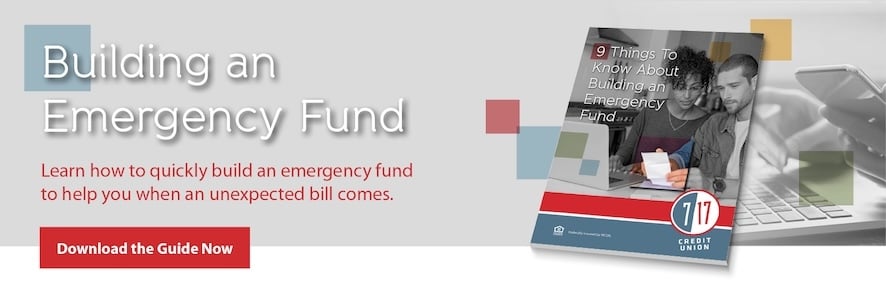- Francesca Sacco
Should you use your emergency fund during the pandemic?
COVID-19 has caused financial problems for millions of Americans. While things are slowly starting to open up again, there are still many people who are either unemployed or working reduced hours. According to a NerdWallet survey, roughly 30% of Americans have already tapped into their emergency fund to combat the financial ramifications of the pandemic. But leaning on your savings can have its own problems. Here’s what you should consider before diving into your emergency fund.
What’s an emergency fund?
One of the most popular pieces of financial advice is to build an emergency fund that you can use in case of unplanned events. Financial experts recommend building an emergency fund that covers at least three to six months of living expenses. Ideally, you should only tap into this fund if you suffer a major job loss. You should reserve your emergency fund for once-in-a-lifetime catastrophes, and create a separate savings account for repairs or other needs.
When should you use your emergency fund?
The thought of tapping into your savings can be frightening, but it’s a better option than taking on debt. Still, you don’t want to make a rash decision. So how can you tell whether or not to use your emergency funds? Unfortunately, the answer isn’t simple. It all depends on your financial situation.
Before you use your emergency savings, be sure you’ve used all the financial tools at your disposal. If you’ve just been laid off, make sure to file for unemployment benefits. If you’re having trouble making rent or your mortgage payment, be proactive. Reach out to your bank, lender or landlord and tell them about your situation. By being proactive, you may discover options you didn’t know about.
If finances are tight, consider cutting back on unnecessary purchases. While stay-at-home restrictions make it easy to limit your spending, consider each purchase you make to determine if it is necessary. Also, consider being strategic with necessities. Focus on pantry staples like rice and beans, and look for inexpensive food items or alternatives to your favorites.
If, after taking these steps, you find you still can’t afford to pay for necessities, then it is probably the right time to access your emergency stash.
What not to spend your emergency fund on
Major one-time costs can catch anyone off guard, but they aren’t emergencies. Nor are predictable expenses like replacing your washing machine. Save your emergency fund for situations when you would otherwise be forced to accumulate credit card debt as your last resort.
What if you don’t have an emergency fund?
According to NerdWallet, one in five (18%) Americans don’t have an emergency fund.
Sometimes, emergency funds aren’t enough. For households with two people experiencing a loss of income, an emergency fund might not provide the intended cushion. If you don’t have an emergency fund or limited savings, look for ways to cut costs. Don’t be afraid to call your creditors and ask for help.
Everyone has been affected by the pandemic differently, and your financial situation could continue to change as the pandemic drags on. Take time now to safeguard your finances, and if you can and have not already done so, start setting aside money for an emergency fund.

To learn more about emergency funds, visit:
https://www.nerdwallet.com/article/finance/emergency-fund-covid19
https://www.thebalance.com/when-should-you-use-your-emergency-fund-453900